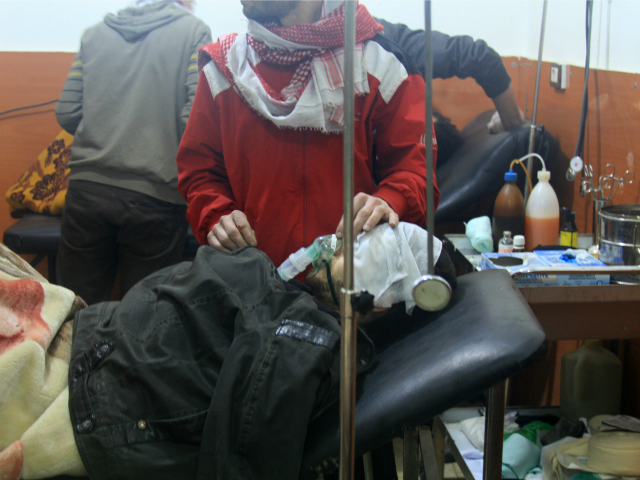Syrian government troops were responsible for two toxic gas attacks and Islamic State militants used sulfur mustard gas, an inquiry by the United Nations and the global chemical weapons watchdog found Wednesday, according to a report seen by Reuters.
The year-long U.N. and Organization for the Prohibition of Chemical Weapons (OPCW) inquiry – unanimously authorized by the U.N. Security Council – focused on nine attacks in seven areas of Syria, where a separate OPCW fact-finding investigation had already determined that chemical weapons had likely been used.
The inquiry was unable to reach a conclusion in the remaining six cases.
The results set the stage for a Security Council showdown between the five veto-wielding powers, likely pitting Russia and China against the United States, Britain and France over whether sanctions should be imposed in the wake of the inquiry.
The inquiry found that there was sufficient information to conclude that Syrian Arab Air Force helicopters dropped devices that then released toxic substances in Talmenes on April 21, 2014 and Sarmin on March 16, 2015, both in Idlib governorate. Both cases involved the use of chlorine.
It also determined there was sufficient information to conclude that Islamic State militants were the “only entity with the ability, capability, motive and the means to use sulfur mustard gas in Marea on 21 August, 2015.”
Syria agreed to destroy its chemical weapons in 2013 under a deal brokered by Moscow and Washington. The Security Council backed that deal with a resolution that said in the event of non-compliance, “including unauthorized transfer of chemical weapons, or any use of chemical weapons by anyone” in Syria, it would impose measures under Chapter 7 of the U.N. Charter.
Chapter 7 deals with sanctions and authorization of military force by the Security Council. The body would need to adopt another resolution to impose targeted sanctions – a travel ban and asset freeze – on people or entities linked to the attacks.
However, Russia – a close Syrian ally – and China have previously protected the Syrian government from council action by blocking several resolutions, including a bid to refer the situation in Syria to the International Criminal Court.
“The use of these weapons is abhorrent and we unequivocally condemn those who unleash them,” British U.N. Ambassador Matthew Rycroft told the council on Monday. “This council must stand ready to demonstrate a robust response to this report.”
Deputy U.S. Ambassador to the United Nations, Michele Sison, told the council on Tuesday: “Those responsible for the use of chemical weapons in Syria must be held accountable for their actions.”

COMMENTS
Please let us know if you're having issues with commenting.